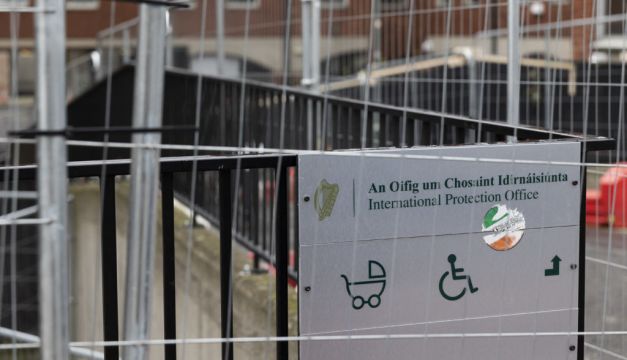Department of Justice officials warned that UK plans to deport asylum seekers to Rwanda were likely to make migrants “think twice” and look at other options like Ireland.
In a briefing on deportation, Minister for Justice Helen McEntee was told that while Britain’s Rwanda policy was “mired in legal actions”, it was still likely to have a knock-on effect for other states.
It said it could make Ireland seem like “an attractive alternative” or as “a stepping stone” to later getting back into the United Kingdom permanently.
The briefing, which was prepared in 2022 as the department considered an end to a Covid-19 moratorium on deportations, said UK policy on migration would inevitably affect Ireland.
It said: “The first transfer of refugees from the UK to Rwanda has yet to succeed. It is currently mired in legal actions.
“While it remains to be seen how successful the U.K.’s much criticised attempt to outsource its immigrant processing to Rwanda will be in reality, [it could be that the chance] of being removed to that state would cause migrants to the U.K. to think twice and seek alternatives.”
The briefing said if the United Kingdom was successful in reducing or deterring arrivals, neighbouring states would feel the impact.
“Ireland may ultimately be seen as an attractive alternative, or a stepping stone to the U.K. via eventual Irish citizenship and the Common Travel Area at a later date. Such behaviour would not be new,” said the briefing.
The warnings about the Rwanda plan have come into stark relief as Ms McEntee said that at least 80 per cent of migrants were crossing the Border from Northern Ireland amid a diplomatic row with the British government over immigration.
The briefing also discussed the complexity of carrying out deportations, even in cases which involved serious criminality.
It explained how the only enforced removals that took place during the pandemic were ones where an individual was deemed to carry “an unacceptable risk to public safety”.
However, these had been few and far between, and even still could be stopped by a person making a late application for international protection.
Officials wrote: “Applications have been lodged by individuals who have been in this state for many years and who, up to the point of deportation, never felt the need to make such an application.
“It is not desirable from a public safety perspective that individuals with serious criminal records or other offences considered suitable for deportation, should remain at liberty in this State for prolonged periods while the state deals with potentially vexatious applications.”
It also cited difficulties in getting certain countries – the names of which were redacted from the briefing – to accept deportees back.
This stemmed from “pandemic-related issues, dysfunctional administrative capabilities and outright unwillingness to cooperate”.
The briefing added: “It is also noteworthy that some of these states are also the beneficiaries of visas for their citizens from Ireland. A question of good faith and reciprocity may arise.”
The moratorium on removals had also created another problem where deportation orders signed prior to the COVID-19 pandemic might no longer be as robust and be subject to legal challenge.
“The fact is that people’s circumstances change, and someone considered suitable for deportation three years ago may now, for example, be married to an Irish citizen or have Irish-born children,” said the document.
There were also questions over whether some of the people subject to older deportation orders were even here anymore.
“Ireland is not in a position to ascertain who has left the state as it has no exit controls,” said the briefing.







